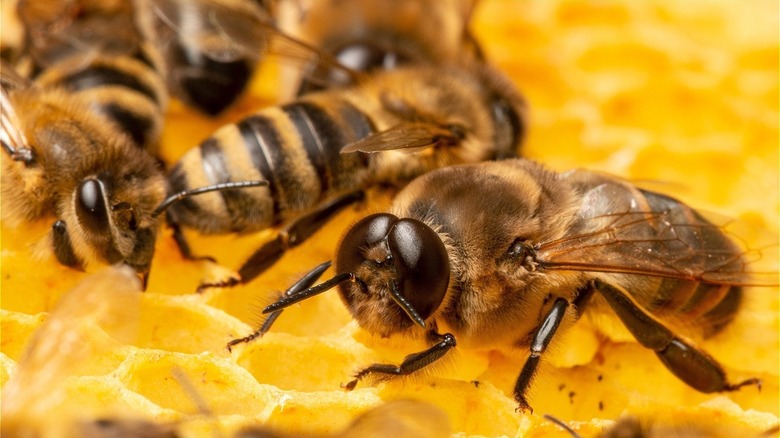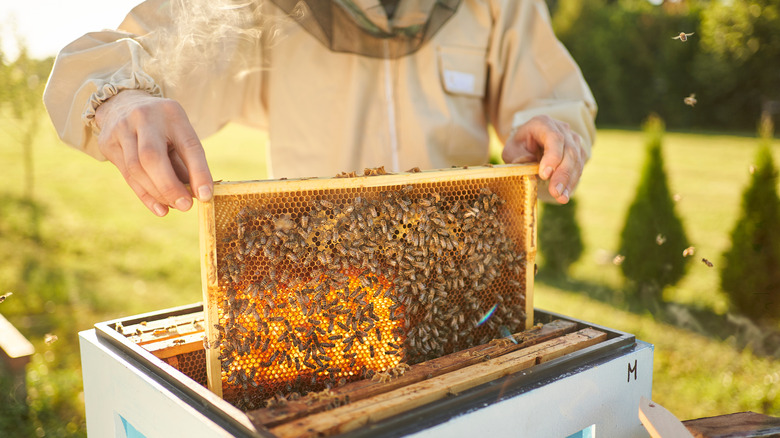60,000 Bees Just Went Missing From A Grocery Store's Headquarters
Grocery chain Giant Food Stores recently announced that there was a break-in at their central headquarters in Carlisle, Pennsylvania. The thief (or thieves) didn't steal money or precious company documents, however. Their prize, in lieu of cash, was roughly 60,000 swarming bees.
Now, hold on, you say. Why in the world does a supermarket corporate headquarters house 60,000 bees to begin with? Back in the summer of 2020, Giant Food Stores created a seven-acre "solar field" at their headquarters as part of a movement supporting clean energy and bee and pollinator populations used in agriculture (via Supermarket News). The field, filled with plants native to the Keystone State, would soon attract honey bees and other natural pollinators, alongside beehives constructed by San Francisco-based nonprofit group Planet Bee Foundation.
As green as their endeavor is, it would seem that some would rather appreciate nature a rather different way. Giant reported that sometime between January 28 and January 30, three beehives containing 60,000 honeybees were stolen from the solar field outside the headquarters. But why would anyone want to take bees to begin with?
Bees colonies are disappearing
The loss of the three beehives comes at an unfortunate time. Honey bee colonies are in a state of rapid decline, as pesticides, urban expansion, and natural factors have begun to reduce their number. According to the nonprofit organization Bee Informed Partnership, Pennsylvania suffered a 41.27% loss of bee colonies in the winter of 2020-2021. While organizations like the Lehigh Valley Beekeepers Association and the Pennsylvania State Beekeepers Association do their best to educate and inform citizens of the plight of the honeybee, as work toward a sustainable solution, it is clear there is still much work to be done.
But what would be the point of stealing bees to begin with? Perhaps the thieves sought to sell off the hives to an unsuspecting beekeeper. Perhaps they even sought to make their own honey, as according to Complete Beehives, the sale of natural honey from the hive can potentially net $600 per hive every year, not to mention the other uses for beeswax and pollen.
Any information regarding the missing hives can be reported to the Middlesex Township Police Department.

